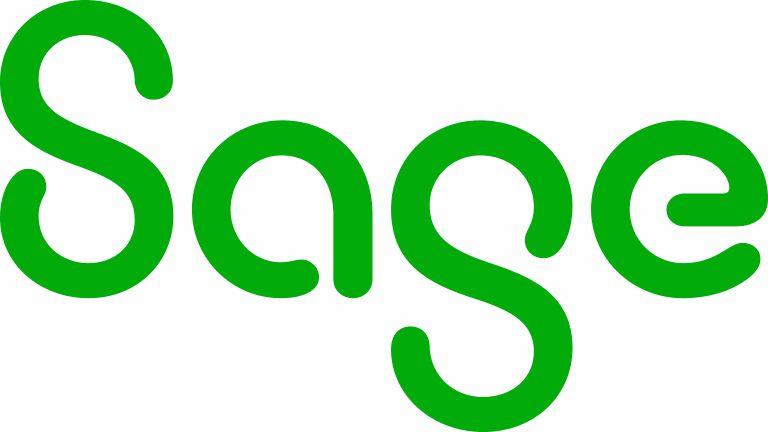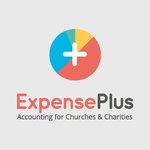What Is Church Accounting Software?
Church accounting software is a form of accounting software created exclusively for churches and other religious organizations. It is an effective tool for handling a church's financial components, such as contributions, expenses, and budgeting. With its advanced features and capabilities, church accounting software streamlines churches' complex financial management chores, allowing them to effectively track and report their financial data.
One of the most important elements of church accounting software is the ability to track contributions and gifts, which allows churches to properly manage and reward their members' generosity. This includes the ability to record and categorize many forms of contributions, such as tithes, offerings, and special donations, as well as provide complete reports for tax and accountability purposes.
Another key feature of church accounting software is its budgeting capabilities. It allows churches to generate and track budgets, making it easier to plan and allocate finances for various church activities and expenses. This allows churches to keep within their budgets and make informed spending decisions.
Church accounting software also provides sophisticated reporting features, allowing churches to generate a variety of financial reports, including balance sheets, income statements, and expense reports. These reports provide a clear and accurate picture of the church's financial situation, assisting in making key financial decisions. Furthermore, church accounting software frequently includes features tailored exclusively to the needs of religious organizations, such as attendance tracking, payroll management for clergy and staff, and tax-exempt status administration.
When selecting church accounting software, consider ease of use, interoperability with existing systems, and security features. Look for software that provides outstanding customer service and is frequently updated with new features and enhancements. Overall, church accounting software is a crucial tool for managing a church's or religious organization's finances.
Its unique features and capabilities expedite financial management operations, maintain accuracy and accountability, and ultimately assist churches in operating more efficiently.
What Are The Recent Trends In Church Accounting Software?
As technology continues to advance, the way churches manage their finances is also evolving. This has led to the development of specialized church accounting software designed to meet the unique needs and challenges faced by religious organizations.
we will discuss the recent trends in church accounting software, so you can make an informed decision when choosing the right solution for your church.
1. Cloud-Based Solutions: With the rise of remote work and the need for flexible access to data, many church accounting software now offer cloud-based solutions. This allows users to access their financial information from any device, at any time, making it easier to manage finances on the go.
2. Integration With Online Giving: More churches are transitioning to online giving as a way to collect donations and tithes. To streamline the process, many accounting software now offer integration with popular online giving platforms, making it easier to track and record donations.
3. Mobile Apps: Many church accounting software now offer mobile apps, allowing pastors and volunteers to manage finances from their smartphones. This is especially useful for busy church leaders who are constantly on the go.
4. Automated Bookkeeping: Some church accounting software now offer automated bookkeeping, which reduces the time and effort needed to record transactions. This feature can save church staff valuable time and resources, allowing them to focus on other important tasks.
5. Budgeting And Forecasting: To help churches better manage their finances, many software now offer budgeting and forecasting tools. This allows churches to plan and track their budget throughout the year, ensuring financial stability.
6. Enhanced Security: As financial data is sensitive and highly confidential, many church accounting software now prioritize security measures. This includes data encryption, user permissions, and regular backups to protect against potential threats.
7. Customized Reports: To cater to the specific needs of churches, accounting software now offer customized report options. This allows churches to generate reports that are tailored to their unique requirements, making it easier to track and analyze financial data.
Benefits Of Using Church Accounting Software
Churches and other faith-based groups face particular financial challenges and responsibilities. Managing donations, spending, and budgets can be difficult, especially for those who are unfamiliar with accounting principles. This is where church accounting software comes in. This specialist software is specifically intended to fulfill the needs of religious institutions and can be an effective tool for managing their financial records.
we'll look at the primary advantages of utilizing church accounting software.
1. Streamlines Financial Recordkeeping: One of the most major advantages of adopting church accounting software is that it simplifies financial recordkeeping. Churches frequently receive multiple donations and must keep track of them for tax purposes. Accounting software allows you to record and save all of your financial transactions in one place, making it easier to track and manage donations, expenses, and funds.
2. Ensures Compliance: Religious organizations must follow certain accounting standards and procedures, such as the Financial Accounting Standards Board's (FASB) guidelines for nonprofits. Church accounting software is intended to adhere to these requirements and provide accurate financial reporting. This eliminates the possibility of penalties or fines for non-compliance.
3. Provides Customizable Features: Each church has distinct financial requirements and processes. Church accounting software includes configurable capabilities that may be modified to match the unique needs of each organization. This covers budgeting, cost monitoring, reporting, and more. The software can also be customized to meet changes in the organization's structure or processes.
4. Improves Efficiency: Manual methods of financial recordkeeping can be time-consuming and error-prone. Church accounting software automates numerous activities, saving time and eliminating the possibility of human error. This allows staff and volunteers to focus on other important parts of church operations.
5. Improves Donor Management: Churches rely largely on donations to fund their operations. Church accounting software frequently includes a donor management feature that makes it easier to track and manage donor information and contributions. This function also allows the church to communicate more efficiently with its donors, resulting in a better relationship.
6. Provides Budgeting Tools: Managing church finances necessitates meticulous budgeting. Church accounting software often offers budgeting features to assist the church in planning and tracking its finances. This enables the business to make more informed judgments about how to allocate funds while remaining within budget.
7. Improves Accuracy and Transparency: With manual recordkeeping, human mistake is always possible. Church accounting software decreases the possibility of errors by automating many procedures and producing accurate and transparent financial reports. This boosts the trust and confidence of contributors and church members in the organization's financial management.
Important Factors To Consider While Purchasing Church Accounting Software?
When it comes to handling a church's finances, reliable accounting software is vital. However, not all software is made equal, and it is critical to weigh multiple criteria before making a purchase. Here are some important considerations to consider while shopping for church accounting software:
1. Church-Specific Features: The program should offer specific functionality for managing church funds. These may include tracking donations, developing and maintaining budgets, producing contribution statements, and managing various forms of funds and accounts. Make sure the software you purchase includes these and other church-specific capabilities.
2. Ease Of Use: Because church personnel and volunteers may not have an accounting background, the program should be simple to use. Look for software that has a simple and intuitive design, as well as useful training and customer assistance to get you started.
3. Integration With Other Applications: Many churches rely on other programs for duties such as event management and online donation. Accounting software that can interact with these apps can help you streamline your processes. This eliminates the need for human data entry and minimizes the possibility of errors.
4. Cloud-Based vs. On-Premise: Cloud-based software enables remote access and automatic backups, whilst on-premise software provides greater control over data protection. Consider your church's needs and preferences to determine which choice is best for you.
5. Scalability: As your church expands, so will its financial requirements. Choose software that can grow with your church and handle increasing volumes of data without significantly affecting performance.
6. Pricing: Accounting software can be a considerable investment, thus it is critical to carefully analyze the pricing structure before making a purchase. Some software has several cost tiers based on the size of the church, while others have a fixed rate. Consider your budget and the amenities provided in each price plan before making a decision.
7. Customer Support: In the event of an issue or concern, it is critical to have dependable customer help from the software vendor. Look for software that offers various methods of customer service, such as email, phone, and live chat, to provide timely assistance when needed. By taking these aspects into account, you may select the best church accounting software for your organization's requirements. Before making a final decision, conduct thorough research and get suggestions from other churches. With the appropriate software, you can streamline your financial procedures while focusing on what is most important: helping your community.
What Are The Key Features To Look For In Church Accounting Software?
When it comes to managing church funds, it is critical to have a dependable and efficient system in place. Here's where church accounting software comes in. But with so many options on the market, it might be difficult to choose the best one. To simplify the decision process, below are the important elements to look for in church accounting software:
1. Fund Management: Church accounting software should be able to track and manage several accounts, including the general, building, and missions funds. This will result in accurate and transparent financial reporting.
2. Donor Management: Most churches rely on donations from their congregations. A good church accounting software should be able to track and manage donor data, including contributions and commitments.
3. Budgeting And Forecasting: Creating and managing budgets is an important aspect of church finance management. Look for software that can help you develop, track, and compare budgets for various finances and time periods. It should also include forecasting skills to assist you plan for the future.
4. Reporting: The software's reporting capabilities should be sophisticated enough to provide accurate and detailed financial reports. Look for ways to personalize reports and simply export them in a variety of formats.
5. Integration: To simplify your financial management process, select software that works with other church management systems, such as membership or payroll software. 6. User-Friendly Interface: Church accounting software should be simple to use for those without an accounting experience. The interface should be straightforward and intuitive, with clear labeling and directions.
7. Security: Church financial data is sensitive and must be protected. To secure your data from illegal access, make sure that the software includes built-in security mechanisms like password protection and data encryption.8. Support and Training: Look for software that includes customer support and training materials. This will help you learn and use all of the software's capabilities more successfully.
9. Pricing: Church accounting software is available in a variety of pricing choices, including one-time purchases and subscriptions. Consider your budget and look for software that strikes a reasonable balance between functionality and cost.
10. Additional Characteristics: In addition to the characteristics listed above, examine your church's specific needs and look for software that includes additional functions to meet those needs. This could involve online donation handling, payroll processing, and event planning. By taking these crucial characteristics into account, you can choose the best church accounting software for not just better financial management but also for making data-driven decisions in the future.
Why Do Businesses Need Church Accounting Software?
Churches and other religious groups, like any other business, require a dependable and efficient system for managing their money and reporting. Here is where church accounting software comes into play. It has customized features and functionalities that are designed to meet the specific needs of religious groups.
Let us look at why businesses in the religious sector need church accounting software.
1. Financial Management: Church accounting software is intended to simplify and expedite the financial management process. It allows you to track and record donations, manage costs, and generate financial reports like balance sheets and income statements all in one spot. This promotes accuracy and transparency in financial transactions, which is critical for religious institutions.
2. Donor Management: Donations are a key source of income for churches. Donor management becomes much easier with church accounting software. It lets you track pledges, generate donation statements, and send thank-you emails to supporters. This aids in developing and sustaining favorable relationships with contributors, resulting in increased support for the organization.
3. Budgeting And Planning: Churches must plan and budget for a variety of initiatives and activities throughout the year. Church accounting software allows you to develop and manage budgets for various activities, making it easier to track spending and stay within the budget.
4. Tax Compliance: Churches are not free from tax regulations, and failing to comply can result in penalties. Church accounting software assists in effectively computing and recording taxes, making it easier to file tax returns and follow tax rules.
5. Reporting And Accountability: Religious groups must be accountable to their members and supporters. Church accounting software generates detailed financial reports that can be shared with stakeholders, promoting transparency and responsibility in financial management.
6. Integration With Other Systems: Church accounting software can work with other systems, such as contribution management software, to provide you with a complete picture of your financial operations. This eliminates the need to manually enter data, saving time and lowering the likelihood of errors.
How Much Time Is Required To Implement Church Accounting Software?
When considering the deployment of church accounting software, the time required varies depending on a number of criteria. The size and complexity of your church's financial operations, as well as your team's willingness to embrace new software, can all have an impact on the schedule. However, it often takes 1-3 months to properly develop and integrate church accounting software.
The first step in deploying church accounting software is to select the correct provider and software for your specific requirements. This process may take many weeks as you conduct research, compare features and pricing, and speak with your team and church leadership. After you've chosen and purchased the software, the next step is to set it up and customize it for your church's financial structure and processes.
This involves entering your chart of accounts, bank account information, and any budget or financial report templates. Depending on the complexity of your church's finances, this phase may take 2-4 weeks. After the program is installed, the following step is to train and onboard your workforce. This can take anywhere from a few days to a couple of weeks, depending on the size of your staff and their experience with accounting software.
It is critical that everyone is comfortable and confident in utilizing the new program in order to avoid disruptions or errors in the future. During the training period, it is also critical to transfer your existing financial data to the new program. If you have a big volume of data, this process may take many weeks, but it is critical for ensuring accuracy and continuity in your financial records.
Finally, once the software has been installed and your team has been taught and prepared to utilize it, you may begin using it for your church's financial management. However, it is critical to continue monitoring and making adjustments as needed during the first few weeks of implementation to guarantee a smooth transition and handle any difficulties that may occur.
What Is The Level Of Customization Available In Church Accounting Software?
Church accounting software provides a variety of customized capabilities to meet the special demands of churches and religious organizations. This level of flexibility enables users to adjust the software to their own financial procedures and reporting needs. One of the most important parts of church accounting software customisation is the ability to track and manage various funds within an organization.
This includes raising and allocating cash for various objectives like as missions, outreach activities, and facility maintenance. Furthermore, most church accounting software allows you to create a custom chart of accounts, which is necessary for precise tracking of income and expenses. This enables customers to categorize transactions based on their individual chart of accounts, making it easier to prepare reports and track budget allocations.
Another important customization option in church accounting software is the ability to provide user permissions. This enables companies to restrict access to financial data and services based on the roles and responsibilities of individual users. For example, the treasurer may have complete control over all financial data, whereas a volunteer may only be able to view particular reports or enter specified transactions.
Furthermore, church accounting software provides alternatives for customized reports and financial statements. Users can specify which data to include in their reports, such as budget against actuals, fund balances, and gift monitoring. They can also tailor the format and appearance of the reports to their tastes and requirements.
Overall, the level of customization offered in church accounting software allows users to handle their finances according to their organization's specific needs. It enables accurate and extensive financial data tracking, optimizes procedures, and provides comprehensive information to help make smarter decisions.
Which Industries Can Benefit The Most From Church Accounting Software?
Church accounting software is an essential tool for any religious institution striving to improve its financial management. However, which industries will profit the most from employing this type of software? In this buyer's guide, we'll look at which sectors can benefit most from church accounting software and why it's a good investment for their financial operations.
1. Religious Institutions: It goes without saying that religious organizations, such as churches, temples, mosques, and synagogues, can tremendously benefit from church accounting software. These organizations frequently rely on donations and contributions from their members, therefore accurate and effective financial administration is essential. Church accounting software allows religious entities to conveniently collect donations, manage budgets, and generate financial reports.
2. Non-Profit Organizations: Church accounting software can help non-profit organizations such as charities, NGOs, and social advocacy groups. Nonprofits frequently have limited resources and rely significantly on donations and grants, so precise and transparent financial management is critical. Church accounting software can help these groups track donations, manage budgets, and provide financial reports, ensuring openness and accountability to their patrons.
3. Educational Institutions: Churches and religious groups that have schools or educational programs can benefit from adopting church accounting software. With tools such as budget management and spending tracking, educational institutions can simply manage their finances and ensure that funds are allocated correctly. Furthermore, church accounting software can assist in handling student billing and scholarship programs, making it a valuable tool for educational institutions.
4. Small Businesses: While church accounting software is not typically associated with small businesses, it can assist them as well. If a religious institution owns or operates a small business, church accounting software can assist them streamline their financial operations and track all commercial transactions. It also assures that religious groups maintain their tax-exempt status, if appropriate.
Conclusion
Finally, selecting the correct church accounting software is critical for effectively and efficiently managing your organization's finances. Before making a purchase, make sure to examine your individual goals, budget, and technical capabilities. User-friendliness, features, customer support, and security are all important considerations when conducting your search.
It is also a good idea to obtain suggestions from other churches or non-profit organizations, as well as read evaluations from credible sources. With constantly growing technology, it is critical to select software that is current and flexible to future developments. A free trial or demo can also help you grasp the software's features and whether it fulfills your needs. Remember to add in the cost of deployment, training, and continuing support when calculating the overall cost of the product.
Investing in reputable and comprehensive church accounting software can help you save time, decrease errors, and streamline financial procedures. We hope you found this buyer's guide useful in making an informed selection about the finest church accounting software for your organization. May your decision bring order, accuracy, and peace of mind to your financial affairs.

















